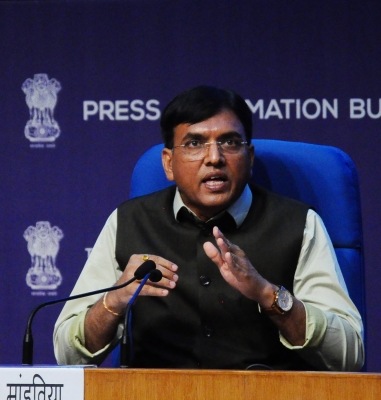New Delhi, May 18 : The implementation of Ayushman Bharat – Health and Wellness Centres (AB-HWC) scheme is on track in most states with a clear roadmap for achieving targets set for December 2022, according to an assessment report of 18 states released on Tuesday.
According to findings of a third party assessment of the scheme in 18 states, released by Union Health Minister Mansukh Mandaviya, the launch of AB-HWC has enabled translation of the vision of moving from selective to comprehensive primary health care package enunciated in the National Health Policy 2017.
It also said that there has been an improvement in equity in access, despite existing constraints such as infrastructure availability and status of peripheral health facilities.
“Client satisfaction with the services provided was much higher among those who received services from HWCs as compared to those who received services from non-HWCs across all the four parameters measured – treatment, medicines, diagnostics and cleanliness,” the report said.
Appreciating the findings of the report, Mandaviya said: “AB-HWC was envisioned by Prime Minister Narendra Modi to provide affordable and accessible healthcare to the last mile.In this regard, third party evaluation is important for proper assessment of the functioning and implementation of the scheme.”
He stated that the report will act as a guiding principle to plan better in the future.
Mandaviya said that the necessary steps will be taken to further strengthen the scheme.He highlighted that the Union government is coordinating with states to ensure last mile delivery through teleconsultation.”The government is committed to provide best healthcare to all,” he said.
The assessment of AB-HWCs in 18 states has been done in two phases by non-governmental entities, GRAAM and JHPIEGO, as well as AIIMS, New Delhi from the government sector, for the year 2020-21.
The primary aim of this exercise was to assess the pace of rollout of AB-HWCs in different states and to identify specific challenges in their rollout.
Given the early stage of implementation, the assessment focussed primarily on the inputs and processes that contribute to the functionality of HWC and reviewed any gains in short-term outputs including community use of the expanded range of services with a focus on chronic non-communicable diseases care.
The assessment was undertaken using a cross-sectional study design with a mixed-methods approach.
The 18 states were selected to cover the spectrum of epidemiological transition levels as defined by the Global Burden of Disease India study with a higher focus on northeastern states.
The study covered a sample of 317 facilities across the 18 states with 117 PHCs, and UPHCs and 220 SHCs.
A total of 1,002 users from upgraded and 1,015 users from non-upgraded facilities were interviewed.The assessment covered both types of comparisons -pre and post conversion of the HWCs; and HWCs and non-HWCs within the same district.
avr/vd
#Wellness #scheme #track #targets #Delhi #Narendra Modi # Narendra Modi #Delhi #New Delhi #Narendra
.






